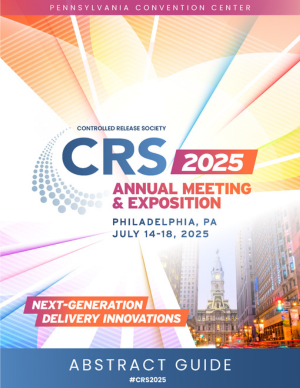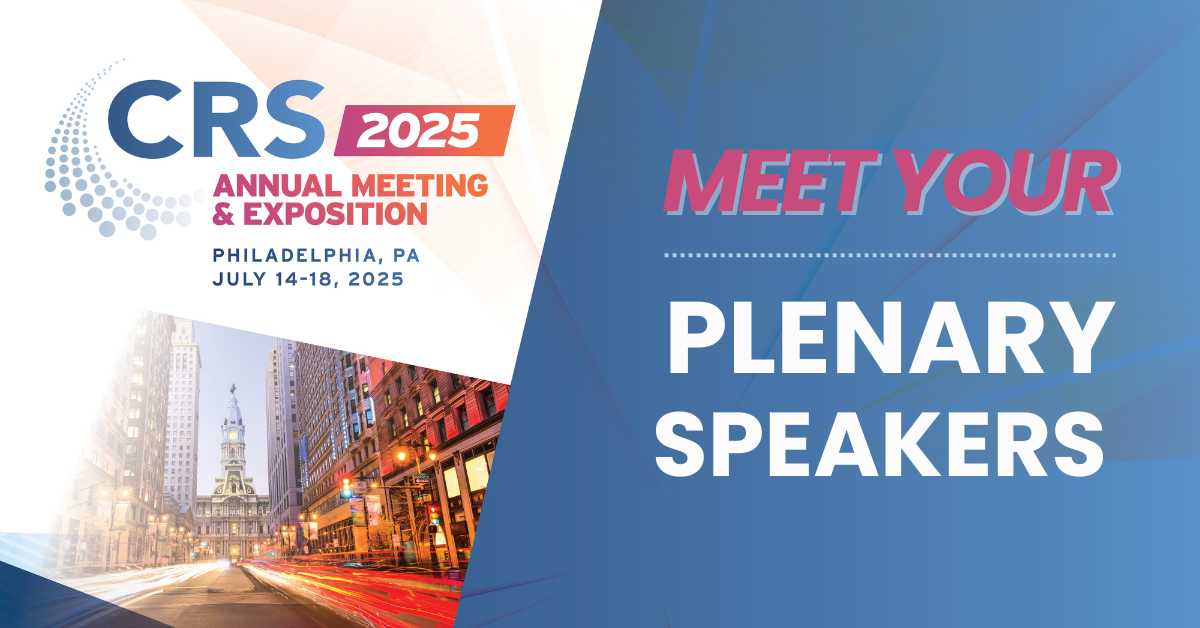
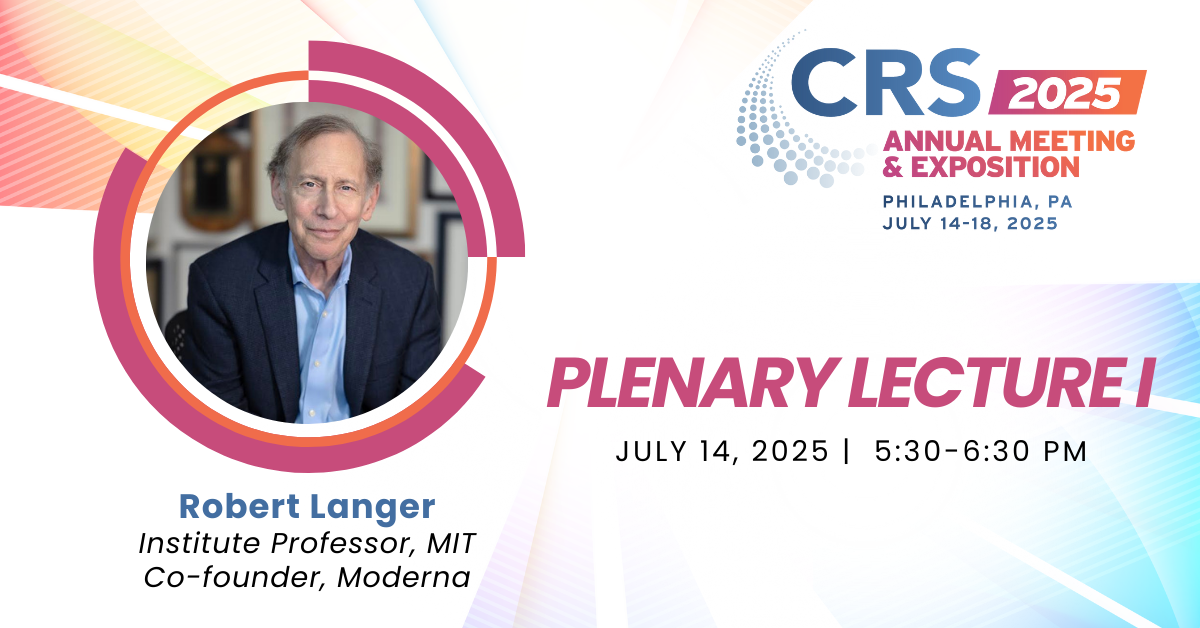
Robert Langer, Ph.D., is one of 9 Institute Professors at MIT; being an Institute Professor is MIT’s highest honor. His articles have been cited over 434,000 times; his h-index of 327 is the highest of any engineer in history. His patents have licensed or sublicensed to over 400 companies; he is a cofounder of many companies including Moderna. He holds 42 honorary doctorates and has received over 220 awards, including both the United States National Medals of Science and Technology & Innovation (one of 3 living individuals to have received both honors), and has been elected to the National Academies of Medicine, Engineering, Sciences, and Inventors.
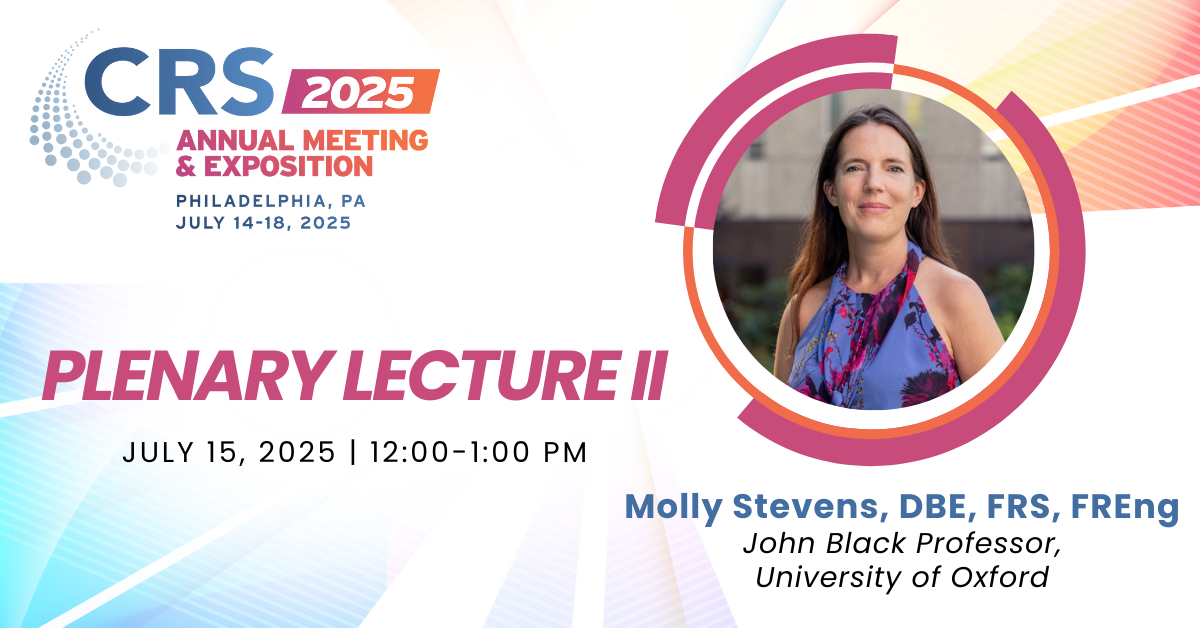
Professor Dame Molly Stevens, FREng, FRS, is the John Black Professor of Bionanoscience at the University of Oxford and also holds part-time professorships at Imperial College London and the Karolinska Institute.
Professor Stevens’ multidisciplinary research balances the investigation of fundamental science with the development of technology to address some of the major healthcare challenges. She is a serial entrepreneur and the founder of several companies in the diagnostics, advanced therapeutics and regenerative medicine space. Her work has been instrumental in elucidating the bio-material interfaces. She has created a broad portfolio of designer biomaterials for applications in disease diagnostics and regenerative medicine. Her substantial body of work influences research groups around the world (>450 publications, h-index 123, >58k citations, Clarivate Analytics Highly Cited Researcher).
Professor Stevens holds numerous leadership positions including Deputy Director of the Kavli Institute for Nanoscience Discovery and the UK Quantum Biomedical Sensing Research Hub, and Scientist Trustee of the National Gallery. She is Fellow of the Royal Society and the Royal Academy of Engineering (UK), Foreign Member of the National Academy of Engineering (USA), International Honorary Member of the American Academy of Arts and Sciences, and she has been recognised with over 30 international awards including the 2023 Novo Nordisk Prize.
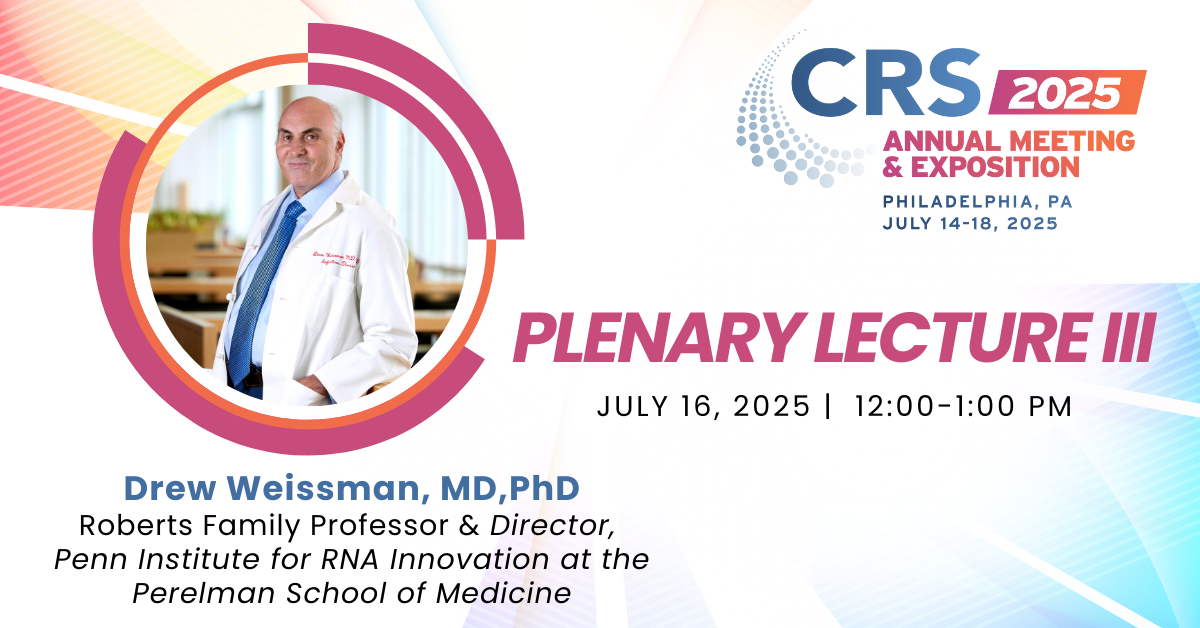
Drew Weissman, MD, PhD, is the Roberts Family Professor in Vaccine Research and director of the Penn Institute for RNA Innovation at the Perelman School of Medicine. He is recognized for his work alongside Katalin Karikó in discovering the modified mRNA technology, which has launched a new era of vaccine and therapeutic development. Their mRNA research breakthrough has been used in both the BioNTech/Pfizer and Moderna COVID-19 vaccines and has revolutionized the field of vaccine development. Dr. Weissman’s current research focuses on developing a pan-coronavirus vaccine to stop the next coronavirus epidemic, a universal flu vaccine, cancer therapeutics, a vaccine to prevent herpes, as well as developing in vivo gene therapy to allow worldwide use and a variety of protein therapeutics delivered with mRNA-LNPs. He has recently expanded his efforts in building scientific and medical equity and is developing the full RNA-LNP ecosystem of development, testing, and use in low and middle income countries.
Dr. Weissman earned bachelor’s and master’s degrees in biochemistry and enzymology from Brandeis University in 1981 and his M.D. and Ph.D. in immunology and microbiology in 1987 at Boston University School of Medicine. Following a residency at Beth Israel Hospital in Boston, he took a fellowship at the National Institutes of Health, where he worked with Dr. Anthony Fauci.
Dr. Weissman holds many patents and has published over 400 papers. He has been recognized with numerous awards including the Lasker-DeBakey Clinical Medical Research Award, the Breakthrough Prize in Life Sciences, the Albany Medical Center Prize in Medicine and Biomedical Research, and the Nobel Prize in Medicine or Physiology.
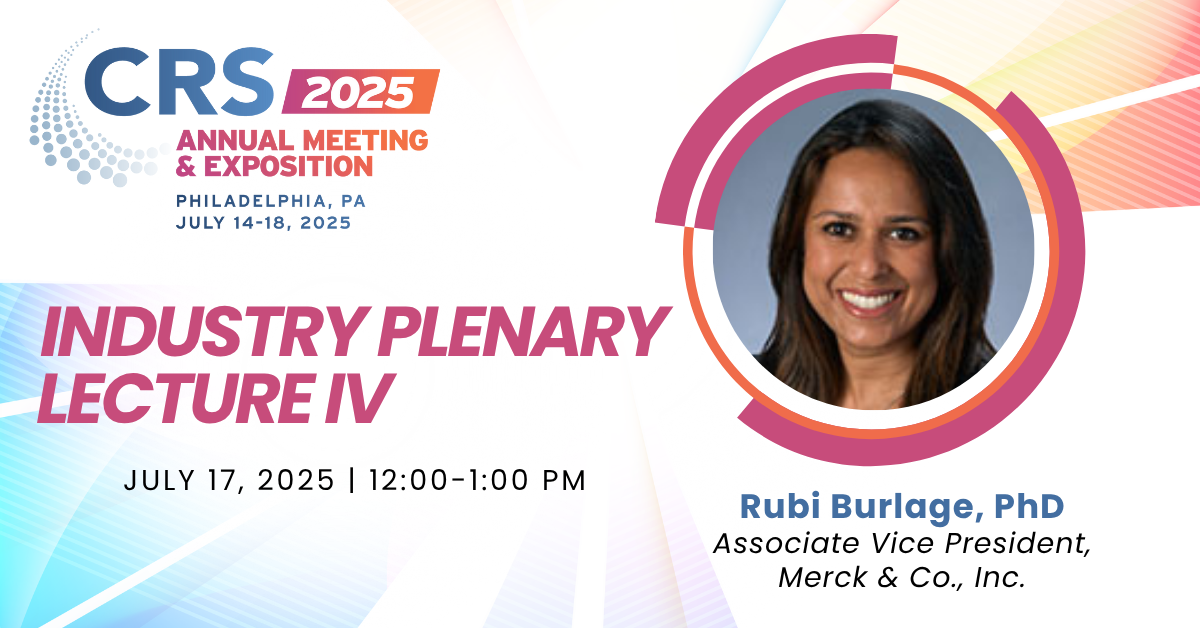
Rubi Burlage, Ph.D. is Associate Vice President, Sterile Product Development at Merck & Co., Inc. In this role, Rubi is responsible for leadership of Merck’s sterile small molecule, biologics, and vaccine drug product formulation and process development. In previous roles, Rubi has served as Executive Director, Sterile Drug Product Commercialization within Merck’s manufacturing division leading commercialization of Merck’s sterile therapeutic and vaccines drug products. She is a co-author on several publications and co-inventor on 3 patents. Rubi earned a B.S. from India and Ph.D. from The University of Iowa. Dr. Burlage is a member of the American Association of Pharmaceutical Scientists (AAPS) and member of the Drug Product Leadership Group for the International Consortium for Innovation & Quality in Pharmaceutical Development (IQ), and serves on the R&D Council of New Jersey as Member of the Board.
Countdown to Philadelphia!
July 14-18, 2025
Pennsylvania Convention Center
Philadelphia, PA, USA


